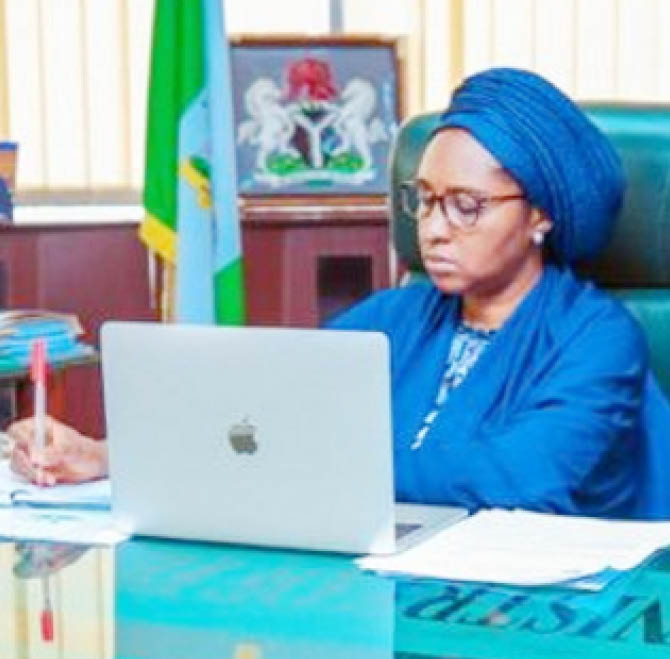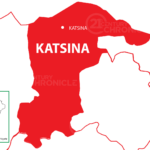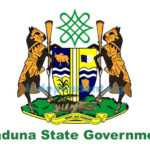The federal government will pay N5,000 to 10 million households for six months as palliative for removing petrol subsidy after June.
Daily Trust reports that the amount is N50 billion per month and reaches N300bn with $800m (N371.6bn at CBN N464/$1 rate) World Bank loan to fund the project.
The Minister of Finance, Budget, and National Planning, Zainab Ahmed, explained this at the Nigerian briefing on the sideline of the World Bank/ International Monetary Fund spring meetings in Washington DC, yesterday.
- Buhari preaches sacrifice at Bola Ajibola’s fidau prayers
- Land tussle: We’ll observe Eid at Obalende – Lagos Central Mosque
Zainab also said the $800m has been negotiated and approved by the Federal Executive Council, and is now before the parliament for approval.
She said: “Once the parliament approves it, we roll. We have also been doing preparatory work side by side along the approval process. And that includes the building of the social register, which will be used for the electronic transfers of the funds.
“We needed to have this ready because when the government eventually removes the fuel subsidy, there will be an immediate transport palliative that will be provided to the most vulnerable members of our society who have been identified, registered, and now contained in our national social register,” she noted.
The minister said the effort is led by the ministry of humanitarian affairs, disaster management, and social development. “They developed that register with the support of the World Bank. The register has about 10 million households, equivalent to 50 million Nigerians.”
Zainab explained that the initial design is to disburse cash transfers of N5,000 per month per household for a period of six months. “So, whether this is enough is an assessment that we are undertaking with the transition team. If it’s not enough, the country has to raise additional resources to be able to cover more people, extend the period or increase the amount; whichever is finally negotiated upon.
“When the subsidy is removed, there would be additional revenue that would now accrue to the Federation account.”
Speaking on how the palliative will impact the transport sector, she said there will be a consideration of whether some of the support will go to the transport sector directly but it’s not a decision that has been taken yet.
Zainab also said the subsidy removal could spike inflation but would moderate. “Anywhere in the world where you remove any kind of subsidy, it has that effect. That is why that initial fund is necessary so that you are deploying it quickly and reducing the impact on the lives of the most vulnerable people in our society.”
Debt Sustainability
Speaking on debt sustainability, the minister said, debt was one of the main things that were discussed throughout the sessions at the World Bank, adding that because of high inflation globally and the continuous quantitative easing the central banks globally are undertaking, interest rates continue to rise.
“So, if you have taken a foreign debt, your debt cost rises without you doing anything. So, we all have these challenges such that what you have planned in budget and provided for just keeps changing because interest rates keep changing.”
To ease these burdens, the minister said various options were discussed including freezing interest rates at some point.
No $23.3m paid to consultant
The minister also denied any knowledge of paying $23m (about N71bn) to some consultants for facilitating the approval of the $800m World Bank loan.
“We raise our funds ourselves. We don’t need consultants to raise funds from these institutions. We raised this $800m by discussing with the Debt Management Office, the Ministry of Finance, and the World Bank country office in Nigeria. We have internal expertise that has worked well over time, so we don’t need consultants for that,” Zainab said.
Plans to increase taxes
On the calls by the World Bank and IMF for countries to raise revenues through taxes, Zainab said: “The new administration has to consider the review of the VAT tax rate by way of increasing it. We have already introduced some new excise duties, so maybe when they stabilise, there may be reviews.
“Again, by way of the finance act where on an annual basis reviews are done on different tax laws to ensure enhancement. But major work is actually in improving efficiency, enhancing compliance, and expanding the tax base,” she explained.




